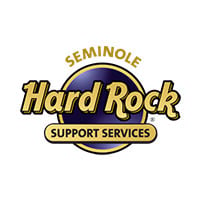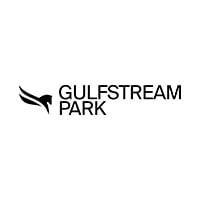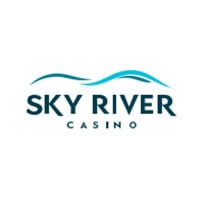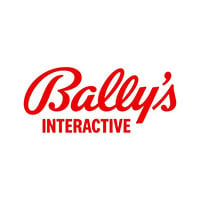
- Our Insights
- Enhancing Customer Experience and Driving Revenue Growth
Intro
In the contemporary hospitality landscape, guest feedback has transcended from private opinions to public testimonials that wield immense influence over hotel reputations. Responding to online reviews is not merely a courtesy; it is a strategic imperative in the industry. Engaging in online reviews has substantial value, it enhances customer service, boosts visitation, elevates average daily rates (ADR), stimulates direct bookings, improves SEO to amplify brand awareness, and ultimately drives significant growth in total revenue.
The Significance of Online Reviews in the Hotel Industry
Online reviews have emerged as a pivotal factor in shaping guest perceptions and decisions in the hotel industry. It is now commonplace to browse your favorite review site before reserving a hotel or restaurant.
The Art of Responding to Online Reviews
Responding to online reviews is more than a formality; it is an opportunity for hotels to demonstrate their commitment to guest satisfaction.
- Personalization: Customized responses exhibit genuine care for guest experiences and feedback.
- Service Recovery: Addressing negative reviews proactively can turn disgruntled guests into loyal advocates.
Elevating Customer Service
Online review responses play a vital role in elevating customer service standards within the hotel industry.
- Guest Appreciation: Responding to positive reviews showcases gratitude, fostering positive guest relations. A study by TripAdvisor found that hotels responding to over 50% of reviews experienced 24% more engagement from travelers.
- Issue Resolution: Addressing negative feedback promptly reflects a commitment to resolving concerns and improving services.
Boosting Visitation and Guest Loyalty
Guests are more likely to choose a hotel with actively engaged management that values guest input.
- Positive Reputation: A consistent pattern of positive review responses enhances the hotel's reputation, attracting more visitors. Research from TrustYou revealed that 87% of travelers agree that an appropriate hotel response to a review improves their impression of the hotel.
- Repeat Business: Guests are inclined to return to a hotel where their feedback is acknowledged and appreciated.
Enhancing Average Daily Rates (ADR)
Responding to reviews can also contribute to an increase in ADR by improving perceived value.
- Guest Perception: Demonstrating attentiveness and responsiveness through review responses justifies premium rates.
- Competitive Edge: ADR gains can position the hotel as a premium choice among competitors.
Stimulating Direct Bookings
Direct bookings are vital for hotel profitability, and review responses can encourage more guests to book directly.
- Building Trust: Engaging with reviews builds trust, making guests more likely to book directly with the hotel.
- Transparent Communication: Direct bookings foster direct communication channels, minimizing commissions paid to third-party platforms.
Amplifying SEO and Brand Awareness
Review responses contribute to a hotel's search engine optimization (SEO), expanding brand visibility.
- Fresh Content: Consistently responding to reviews generates fresh content, improving the hotel's online presence.
- Keywords and Phrases: Review responses can incorporate relevant keywords and phrases, boosting search ranking.
Catalyzing Revenue Growth
The cumulative effect of improved customer service, increased visitation, higher ADR, direct bookings, enhanced SEO, and amplified brand awareness directly contributes to revenue growth.
- RevPAR Enhancement: Higher occupancy and ADR translate into improved Revenue per Available Room (RevPAR).
- Reduced Commission Fees: A surge in direct bookings mitigates reliance on third-party platforms, saving on commission costs.
Overcoming Challenges
Engaging with online reviews also comes with potential challenges that hotels need to address:
- Negative Feedback Handling: Skillfully addressing negative feedback without escalating the situation requires careful communication.
- Time Management: Consistently responding to reviews can be time-consuming, necessitating effective time management strategies.
Strategies for Effective Review Response
To maximize the benefits of review responses, hotels can follow specific strategies:
- Prompt Responses: Timely responses show attentiveness to guest feedback.
- Positive Language: Use positive and appreciative language to showcase the hotel's commitment to guest satisfaction.
- Resolution Actions: Detail the steps taken to address negative feedback and prevent future occurrences.
Conclusion
In an era of transparency and interconnectedness, online review responses have emerged as a critical facet of hotel operations. The multifaceted benefits of this practice extend beyond courteous acknowledgment; they encompass elevating customer service, attracting more visitors, increasing ADR, fostering direct bookings, enhancing SEO, and driving substantial revenue growth. By embracing online review responses as a strategic endeavor, hotels can craft a positive image, cultivate guest loyalty, and position themselves as industry leaders committed to delivering unparalleled experiences. This convergence of guest input and proactive engagement forms the cornerstone of a thriving, customer-centric hospitality establishment in today's dynamic and competitive marketplace.
LET'S GET TO WORK









